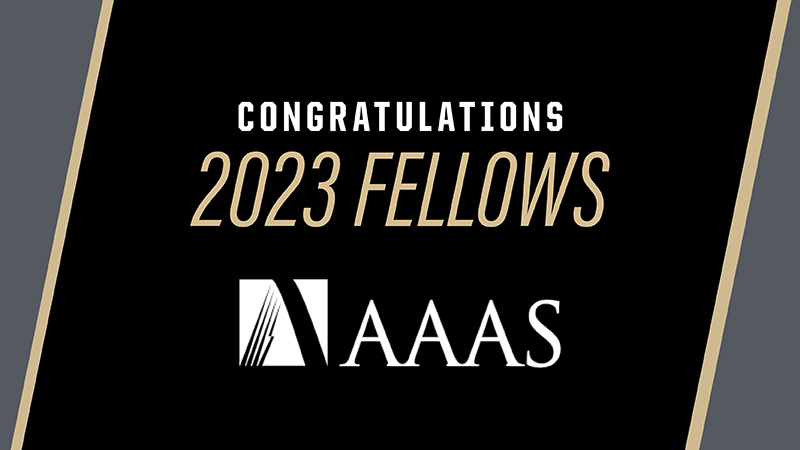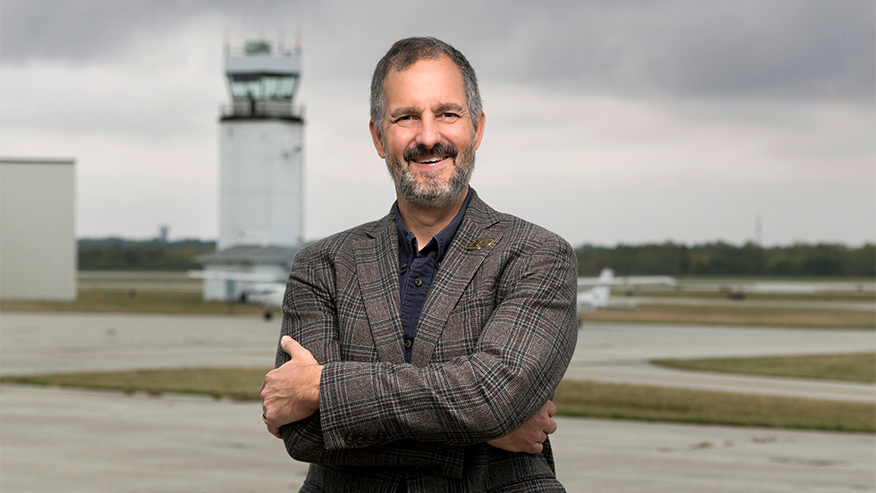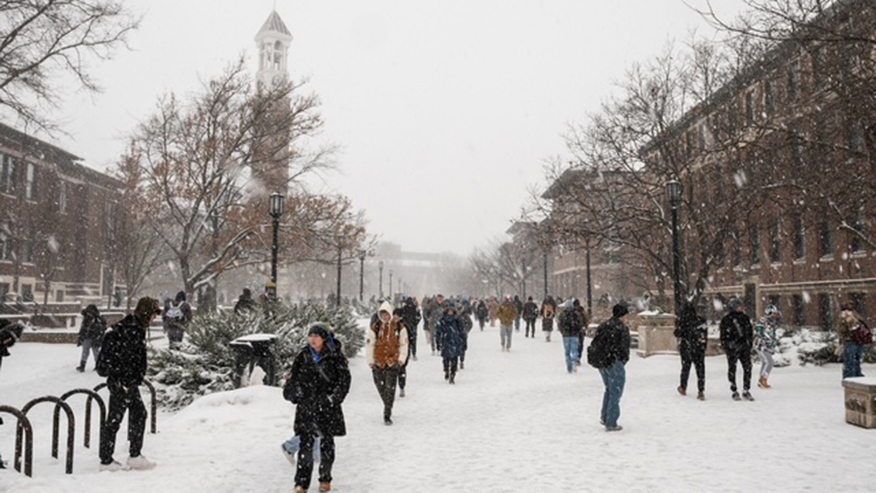Purdue faculty chosen as fellows of the American Association for the Advancement of Sciences

WEST LAFAYETTE, Ind. —
Purdue University is recognizing faculty members who have been elected as fellows of the American Association for the Advancement of Sciences (AAAS), one of the most distinct honors within the scientific community.
The honor, from the world’s largest general scientific society, recognizes members whose efforts on behalf of the advancement of science or its applications are scientifically or socially distinguished. In the College of Agriculture, professor Elizabeth J. Tran was elected for scientific discoveries in RNA biology. From the College of Engineering, professors Carol A. Handwerker, David J. Love, Ajay P. Malshe and Fabio H. Ribeiro were elected as fellows for advances that reduce environmental impacts, improve signal processing for wireless communications, improve mechanical machines in multiple industrial sectors through ultra-high efficiency and sustainability, and build understanding of chemical reactivity in catalysis.
“Election as a fellow of AAAS is a prestigious honor within the scientific community, and we are proud that our faculty colleagues have been awarded this honor,” said Karen Plaut, Purdue executive vice president for research. “On behalf of the entire research community at Purdue, I congratulate professors Carol Handwerker, David Love, Ajay Malshe, Fabio Ribeiro and Elizabeth Tran for this outstanding accomplishment.”
New fellows from Purdue are:

Carol A. Handwerker, the Reinhardt Schuhmann Jr. Professor of Materials Engineering and Professor of Environmental and Ecological Engineering, is being honored for distinguished contributions to science-driven technological advances that reduce environmental impacts, including the global adoption of lead-free solder in electronics manufacturing. Handwerker maintains research interests in developing new sustainable materials technologies for advanced packaging, heterogeneous integration, and thin film solar cells, creating R&D partnerships for establishing circular economy pathways for microelectronics, controlling interface properties to design microstructures in polycrystalline materials and thin films, and improving the manufacture and reliability of lead-free solder interconnects on printed circuit boards. Her work on lead-free solder was spurred by a European Union ban on the use of lead in electronics and electrical equipment, which necessitates continuing research to resolve many application-specific issues, particularly for high reliability applications such as military, aerospace, and medical devices.

David J. Love, the Nick Trbovich Professor in the Elmore Family School of Electrical and Computer Engineering, is being honored for distinguished contributions to the fields of communications and signal processing, particularly for the analysis and development of new adaptive communication schemes for multiple antenna and millimeter wave systems. His research interests are in the design and analysis of broadband wireless communication systems, beyond-5G wireless systems, multiple-input multiple-output (MIMO) communications, millimeter wave and higher frequency wireless, software defined radios and wireless networks, coding theory and MIMO array processing. His work on codebook-based precoding for multiple antenna systems is found in all 4G and 5G wireless systems. His research on millimeter wave beamforming and massive MIMO have also found widespread use in 5G.

Ajay P. Malshe, the R. Eugene and Susie E. Goodson Distinguished Professor of Mechanical Engineering with a courtesy appointment in agricultural and biological engineering, is being honored for distinguished contributions to science, engineering and entrepreneurship in bio-inspired designs, advanced materials and nanomanufacturing with impact in multiple industry sectors and society. Malshe is an internationally recognized educator, inventor, entrepreneur and business executive leader. His tech areas of core competencies are intelligent designs, multifunctional materials, advanced manufacturing, productization and technology scale-up, implementing technology breakthroughs for commerce and equity. Application areas of his interest and experience are heterogeneous microelectronics, nanomaterials for mechanical applications, in-space manufacturing and manufacturing for next-generation agriculture such as cellular agriculture. He works on the principle that simple ideas make the world a better place and uses his experience and interdisciplinary skills to realize those ideas while building synergy among people, ideas and tools.

Fabio H. Ribeiro, the R. Norris and Eleanor Shreve Professor of Chemical Engineering and director of the National Science Foundation Engineering Research Center for Innovative and Strategic Transformation of Alkane Resources (CISTAR), is being honored for distinguished contributions to the field of surface catalysis, particularly for unraveling concepts and mechanisms that determine chemical reactivity. His current work focuses on addressing the global energy transition through the development of decarbonization technologies to enable U.S. breakthroughs for sustainable resources.

Elizabeth J. Tran, professor of biochemistry, is being honored for distinguished contributions to the field of molecular and cellular gene regulation, particularly for dissecting how RNA and DNA structures impact every step of gene expression. Her research uses a combination of biochemistry, molecular biology, and bioinformatics to address key questions about the mechanisms of RNA helicases, the roles of long noncoding RNAs, and to pinpoint RNA-based processes whose misregulation results in cancer. This multidisciplinary approach allows for new insights and novel discoveries in RNA biology.
Writer/Media contact: mmartial@purdue.edu
Sources: Karen Plaut, plautk@purdue.edu
Elizabeth J. Tran, ejtran@purdue.edu
Carol A. Handwerker, carolh@purdue.edu
David J. Love, djlove@purdue.edu
Ajay P. Malshe, amalshe@purdue.edu
Fabio H. Ribeiro, fabio@purdue.edu



